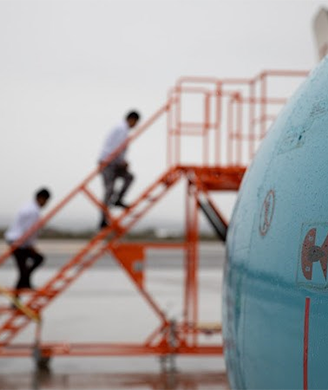Archived Content
In an effort to keep ICE.gov current, the archive contains content from a previous administration or is otherwise outdated. This information is archived and not reflective of current practice.
US and Mexico continue Interior Repatriation Initiative, first flight of 2020
TUCSON, Arizona – U.S. Immigration and Customs Enforcement (ICE) continued its Interior Repatriation Initiative (IRI) Jan. 16, with the first flight in 2020. The IRI is a joint agreement between the governments of the United States and Mexico to ensure that those repatriated to Mexico continue to be returned closer to their homes in a safe, humane, and expeditious manner.
The goal of the IRI is to return Mexican nationals to the interior of Mexico. ICE will continue these flights, as needed. Having this framework will reduce recidivism and border violence by returning Mexican nationals to their cities of origin, where there is a higher likelihood that they will reintegrate themselves back into their communities, rather than fall victim to human trafficking or other crimes in Mexican border towns.
ICE works closely with U.S. Customs and Border Protection (CBP) to ensure safe and expedited removal of individuals who have unlawfully crossed the southern border. Expedited removals occur when a non-U.S. citizen is denied entry into the United States and is physically removed, usually from a U.S. port of entry. Expedited removals carry the same legal consequences as a removal (deportation).
ICE's Enforcement and Removal Operations (ERO) will provide air transportation to Guadalajara International Airport in Guadalajara, Mexico. The government of Mexico will provide additional transportation to the cities of origin.
The first repatriation flight of the new year, and second of fiscal year 2020, departed Tucson International Airport Jan. 16, carrying 124 Mexican nationals.
The ERO Removal Division began the IRI pilot program in 2012 leading to its signing as a permanent initiative April 18, 2013. With program oversight, the ERO Removal Division works with two of its entities, ICE Air Operations and the International Operation Division, to provide air transportation and removal coordination services to the 24 ERO field offices nationwide. This close coordination enables the agency to repatriate large groups of deportees in an efficient, expeditious and humane manner.



